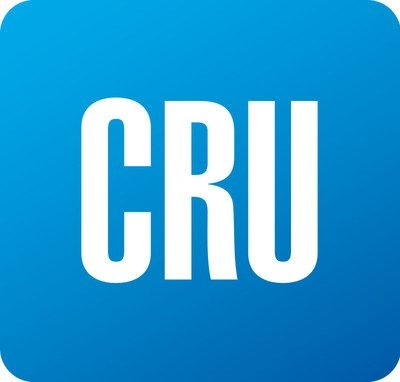Overseas

June 21, 2020
CRU: U.S. Sheet Market Mulls Mill Restarts and Demand Prospects
Written by Tim Triplett
By CRU Prices Analyst Estelle Tran, from CRU’s Global Steel Trade Service
U.S. automaker restarts in May drove an increase in steel demand and helped to prop up sheet prices. There is concern, however, over whether there is enough new demand to support mills restarting or if manufacturers are mainly managing pent-up demand. We’ve heard feedback that mills had stronger bookings for June production than for July, and lead times remain short. Steel Market Update, which is owned by CRU, published in its June 11 survey that HR coil lead times receded to 3.73 weeks from 3.91 weeks two weeks before.
Notwithstanding this uncertainty, the incremental increase in auto and industrial demand has caused mills to start to come back online. U.S. Steel restarted its banked #1 furnace at its Mon Valley Works around the same time it took down its #3 furnace for maintenance. We have heard that JSW Steel USA will be restarting its EAF in Mingo Junction, Ohio, this week. AK Steel announced plans to restart its Dearborn C furnace in mid-July, and we expect an announcement from ArcelorMittal about restarting its Indiana Harbor #4 furnace.
Sheet prices have already started to slide back, though. After reaching the recent peak of $510 /s.ton on June 3, sheet prices have stepped down the last two weeks and most recently hit $492 /s.ton on June 17. Recent deals cut by domestic mills may have successfully kept many service centers from buying imports. Imports are probably going to continue to flow where there are Section 232 exclusions, quota cap room, currency advantages, or a wide enough spread in price, as is the case with CR and HDG coils. The tonnage may not be significant, while domestic prices remain soft and lead times short.
Mexico Resumes Shipments to the U.S.
After Covid-19-related closures, Mexico resumed auto production, construction and mining on June 1, as the government deemed these sectors to be essential. There was significant pressure from U.S. automakers for Mexican manufacturers to sync up and not disrupt supply chains.
The Mexican steel market has been weak because of the Covid-19 shutdowns and mills are looking to export more to the U.S. Mexican rebar to the U.S. was heard to be offered at $540 /s.ton on a loaded truck basis in Houston for July and August delivery.
The U.S. Department of Commerce closed a gap that allowed lightly fabricated rebar imports into the U.S. without duty. Commerce deemed that rebar “bent at one end or both ends” exported by Deacero should be subject to antidumping duties if not associated with a specific project, and cash deposits should be collected. The impact of this decision will be relatively small in tonnage and cost, as Deacero’s dumping margin has fluctuated between zero and 20 percent. However, the anti-circumvention inquiry decision appears to be part of a trend to plug holes that were allowing imports.
Canada Launches First Heavy Plate AD Case
With a petition from Algoma, the Canada Border Services Agency (CBSA) launched an antidumping case on heavy plate from Taiwan, Germany, Malaysia, South Korea and Turkey. There are already duties on plate imports from 11 countries, including Korea, but this case addresses heavy plate specifically. Heavy plate demand has been sluggish with the weakness in the oil and gas sectors, and the petition—received April 6—came at a time when the Canadian market was under additional pressure from Covid-19. Imports from the subject countries represented 37.5 percent of heavy plate imports into Canada. CBSA estimated dumping margins from 16.9-44.5 percent for the countries named. Though duty orders are not a given in Canada, this case is probably going to result in further trade barriers. Please also see a recent CRU View for a further brief discussion on the possible impact on one of the exporters, Germany.
Brazilian Slab Prices Edge Up Despite Covid-19
Slab prices have increased by $10/ t m/m, to $355 /t FOB and there are indications that prices will increase another $10 /t on the back of higher iron ore prices as well as some supply tightness. Higher demand from China and the USA has supported the price increase, and Brazilian sellers are now negotiating for August shipment. Meanwhile, European buyers have remained on the sidelines because of continued weak end-use demand.
On the trade front, Brazilian producers have put pressure on the president to ask the U.S. government for some flexibility on the S232 quotas for Brazilian steel. Due to the domestic market weakness, Brazilian producers are looking for increased exports. Mills are limited in their sales of slab and HDG coil to the U.S. because of S232 quotas. The push for the U.S. to lower its trade barriers is in contrast to steelmakers’ calls for trade investigations into general steel imports from China and South Korea
Outlook: What Comes After Pent-up Demand?
Scrap prices heading into July are expected to be flat to down, so steel prices are unlikely to gain any support from scrap. While industrial production increases and furnaces get switched back on, it is unclear whether there will be sufficient demand to support the restarts. Import prices, particularly for longs, will also cap any gains, even as demand increases.
Sheet prices have settled back recently, not because of imports but continued sluggish demand. Service centers have been focusing on paring down their inventories and servicing orders from before the Covid-19 shutdowns. Consequently, mill lead times failed to extend, even as sales increased in the last month. Between volume-based deals and low-priced June contract orders, mill lead times could extend further, however, mill restarts could lead to further pricing weakness.
Brazilian slab producers are seeking to raise export prices as global demand is expected to return. There are expectations that Chinese demand should hold up for the next couple of months, and after that, higher prices and freight rates will reduce Brazil’s competitiveness.






